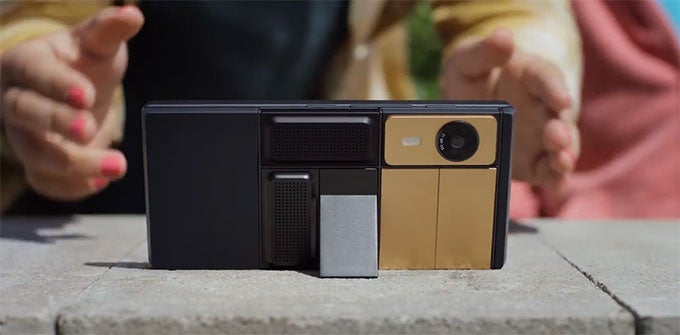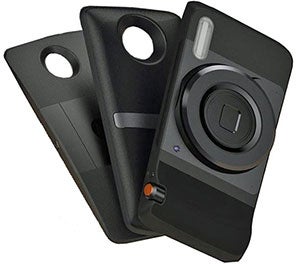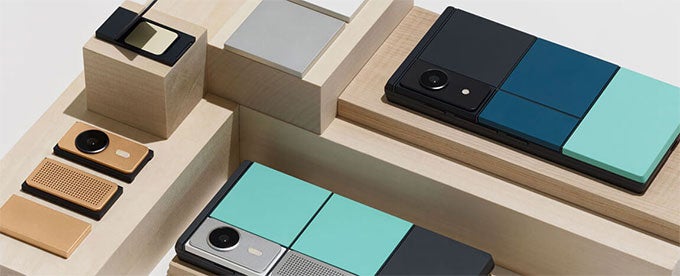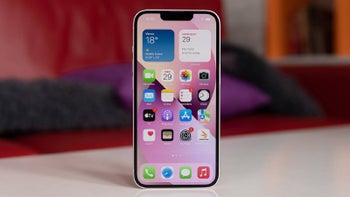Modular smartphone hardware is fraught with problems (but ones worth solving)
This article may contain personal views and opinion from the author.

Buying a new smartphone is a big commitment for a lot of us, involving a fair amount of research, price-hunting, weighing the pros and cons of various features, and ultimately sinking what can be a sizable amount of cash on our purchase. After going through all that, we're ready to stick with that phone for as long as we can, so there's little worse than finally deciding on your new dream-phone only to see a fresh model come out a month later with some fantastic new feature.
But soon this kind of buyer's remorse could be a thing of the past, as we're in the early days of the era of modular smartphones, where adding new functionality to your existing handset promises to be as easy as changing your case is now.

How will this whole modular-phone experiment play out? We reached out to get your opinions earlier this month, and you were decidedly mixed: about a third of you were really excited for all this potential, a bit less of you were ready to dismiss the whole concept as a gimmick, and a bit more were just all sorts of unsure.
A really successful modular smartphone platform will do three things: it will offer users the hardware options they want, it will have solid software support, and it will do all this without unnecessarily interfering with our established smartphone-use routines.
Hardware solution, or creating more hardware problems?
This here's the big one, as hardware primarily drives the whole modular smartphone conversation: will buying a phone that supports modular hardware guarantee that you get the future-proof expansion you're looking for?
When LG launched the G5, it put the phone's hardware expandability front and center, but already we had a problem, as there just weren't enough expansion modules to choose from. The LG Cam Plus camera module was a great choice to introduce the phone with – who doesn't use their phone as a camera, and wouldn't love a way to make that interaction more powerful? But the Hi-Fi Plus audio module has had some serious availability issues, and even if it had been easy to get your hands on, two modules doesn't represent a whole lot of choice.
Sure, LG promises that more modules are coming soon, but that doesn't make the G5 much easier to sell today. Instead, we find ourselves forced to accept a lot of future promises – and until there's a really robust smartphone-module ecosystem, this is a problem that's going to plague future modular phones.

Cross-compatibility
Speaking of future phones, how will buying a hardware module today affect how you look for your next phone?
When we split up the purchases of base phone hardware and feature-packed add-ons, shoppers are going to want that modular investment to pan out – and that means supporting more than one smartphone model.

Maybe the most promising contender here is Google's Project Ara, with standardized modules absolutely crucial to its functionality. With slide-in modules, that's easy enough, but things get a lot stickier when the form factor of the expansion modules are tied to the shape of the phone's hardware, as they are in the G5, and presumably will be for Motorola's modules.
While a phone we use every day ends up feeling incredibly familiar over time, we're not necessarily married to that design, and often look forward to one day trying out bigger/smaller phones, thinner phones, or just models with different curves.
But if I don't use a case, I know I'm going to ruin my phone
Smartphone cases represent an interesting duality: they're either the worst thing to befall phones, obscuring their beautiful designs, or the best thing to happen to them, protecting their delicate hardware from our awful, clumsy handling. As such, a lot of us have come to somewhat of an understanding with cases as a necessary evil – we may not love them, but we're absolutely terrified of not having them.

How the heck do you protect a phone when swapping hardware modules suddenly makes the phone longer, cause odd protrusions to pop out of it, or introduces a camera lens where none was present before? Will each module have to come with its own case?
Motorola's MotoMod leaks suggest the modules themselves could serve as cases – that's one way to do things. And Project Ara could conceivably work with bumper-style cases, as the phone's overall profile wouldn't change much.
But however they do it, it would behoove manufacturers of modular phones to think long and hard about not asking users to give up protective cases in the name of modular expansion – because for the moment, that might be just too big of an ask.
Hardware's only part of the equation
The ability to bring new hardware features to an aging phone sounds great, but the ultimate usefulness of those new abilities is going to depend a lot on how well supported they are in software.
While this isn't necessarily a deal-breaker, as presumably no manufacturer would release a new hardware module without strong first-party software support, that threatens to limit its appeal; what if that crazy ultrasound-beam audio system we mentioned before only works with one music player?
This can and will get better. But if you buy your first expansion module, and quickly find yourself getting bored with it after you realize it doesn't work with a ton of apps, how likely are you going to be to purchase that next one?

Don't be so down on the future
All of these add up to some compelling reasons why that wait-and-see mentality might be the best one to take when approaching modular smartphones. Mobile tech is one long story about manufacturers learning from their mistakes: finding what works and making it better, and not being afraid to try a new idea and fail.
So while we're trying to go into this eyes-open, and accept that some rough patches could keep this from being the hardware utopia we'd love it to be, we're also still hugely excited about where this whole experiment is going to lead.
Will you be a willing test subject, eager to see how ever-changing hardware can enhance your smartphone experience? More power to you, because even if these early attempts come up a little short, we're all in for one hell of a fun ride in the long term.












Things that are NOT allowed: